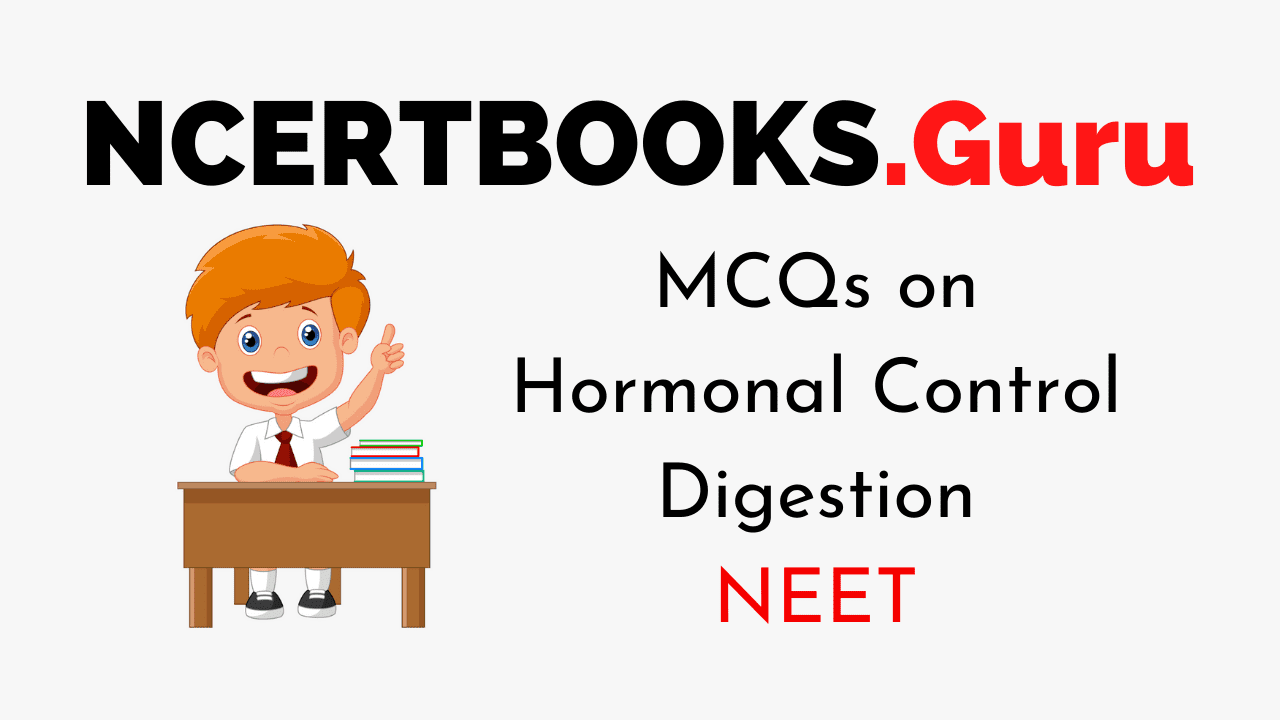NEET Biology is the scoring paper in the medical entrance examination. Here, you will discover the NEET Biology MCQ Questions for all Concepts as per the latest syllabus. Practice more on a regular basis with these NEET Biology objective questions on air pollution and improve your subject knowledge & problem-solving skills along with time management. NEET Biology Hormonal Control Digestion Multiple Choice Questions make you feel confident in answering the question in the exam & increases your scores to high.
MCQs on Hormonal Control Digestion
1. Enterogastrone is
(a) hormone secreted by intestinal mucosa
(b) hormone secreted by mucosa
(c) secreted by endocrine glands related to digestion
(d) hormone secreted by gastric mucosa
Answer
Answer: (a)
2. Juice containing sodium glycocholate is secreted under the influence of
(a) enterogastrone
(b) cholecystokinin
(c) enterokinin
(d) secretin
Answer
Answer: (b)
3. Gall bladder contractions and Pancreatic secretion are triggered by
(a) enterogastrone
(b) enterocrinin
(c) gastrin
(d) cholecystokinin
Answer
Answer: (d)
4. Cholecystokinin hormone which is released from the intestinal epithelium triggers
(a) release of bile from gallbladder
(b) conversion of protein to peptones
(c) conversion of fats into glycerol
(d) secretion of pancreatic juice
Answer
Answer: (a)
5. The hormone secretin triggers
(a) gallbladder
(b) pancreas
(c) crypts of Lieberkuhn
(d) stomach
Answer
Answer: (b)
6. This regulates the enzymatic quantity in pancreatic juice
(a) Cholecystokinin
(b) Gastrin
(c) Pancreozymin
(d) Secretin
Answer
Answer: (c)
7. In a mammal, the release of pancreatic juice from the pancreas is triggered by
(a) cholecystokinin
(b) trypsinogen
(c) secretin
(d) enterokinase
Answer
Answer: (c)
8. This body part secretes secretin hormone
(a) Oesophagus
(b) Ileum
(c) Duodenum
(d) Stomach
Answer
Answer: (c)
9. The hormone gastrin is secreted by
(a) pancreas
(b) liver
(c) stomach
(d) intestine
Answer
Answer: (c)
10. Secretion of gastric juice is controlled by
(a) cholecystokinin
(b) gastrin
(c) enterogastrone
(d) none of the above
Answer
Answer: (b)
